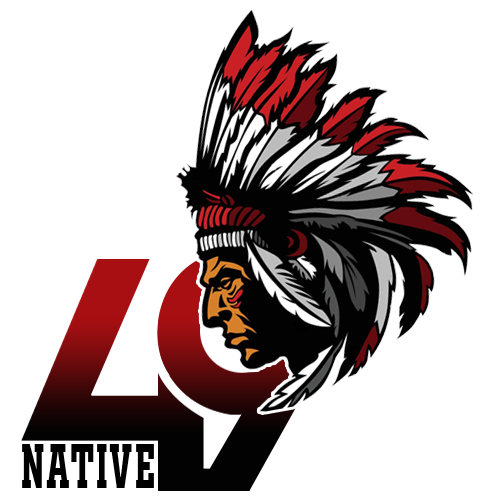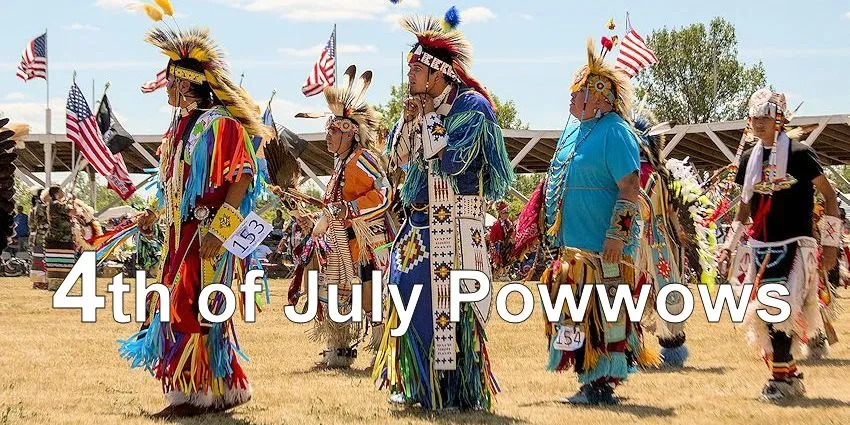The 4th of July, a day synonymous with American independence, resonates differently among Native American communities. It’s a day where heritage, remembrance, and a deeper connection to their roots take center stage.
In this exploration of Native American 4th of July celebrations, we venture into the diverse traditions and perspectives that define this day, unveiling a rich tapestry of cultural significance and resilience, with 49native.
The 4th of July: A Complex Day for Native Americans

The 4th of July, a day synonymous with American independence, fireworks, and patriotic fervor, holds a more complex narrative when viewed through the lens of Native American history. This article delves into how Native Americans observe the 4th of July, exploring their relationship with a holiday that celebrates a nation whose expansion significantly impacted indigenous populations and their way of life.
Colonial Beginnings and Indigenous Impact
1776: The Birth of a Nation
Our journey begins in July 1776 when the Declaration of Independence marked the birth of the United States. This pivotal moment also triggered concerns about the fate of American Indians as the nation expanded.
Government Policies and Cultural Suppression
1880s: Secretary Henry Teller’s Religious Crimes Code
Fast-forward to the early 1880s when Secretary of the Interior Henry Teller formulated the Religious Crimes Code. This code, part of the Department of Interior’s Office of Indian Affairs, aimed to suppress American Indian ceremonial life.
The regulations specifically targeted tribal dances, feasts, and religious practices, even leading to the confiscation of sacred objects. Violation of these prohibitions could result in imprisonment or the withholding of treaty rations.

Impact Over Decades
Teller’s code, implemented via Indian agents, persisted until the mid-1930s, lasting for nearly five decades. During this era, sacred ceremonies like the Sun Dance and Ghost Dance either vanished or were conducted secretly. In later years, some of these rituals were revitalized by indigenous tribes.
The 4th of July: A Paradoxical Day
A Platform for Native American Ceremonies
Paradoxically, the 4th of July provided a platform for some tribes to continue their cultural ceremonies, despite the broader policies aimed at suppression. Superintendents and agents allowed reservations to hold indigenous ceremonies on Independence Day, justifying it as an opportunity for Native Americans to learn about and celebrate the ideals of the United States.
This complex relationship with the 4th of July reflects the multifaceted history of Native Americans in the context of American independence. It is a story of cultural resilience and adaptation within a broader narrative of suppression and change.
Read more: Is Native American Day A Federal Holiday?
Meaning Of Native American 4th Of July?

Discover the unique tradition of American Indian tribal gatherings that occur on or around the 4th of July. These vibrant celebrations have evolved over time to become social highlights within tribal communities. This article explores the rich history and significance of these gatherings, where American Indian veterans are welcomed as modern-day warriors.
Tribal Homecomings and Honoring Veterans
From Cultural Ceremonies to Homecomings
The 4th of July holds a special place in American Indian culture. Tribal gatherings on this date have transformed into tribal homecomings over the years.
A Salute to Modern-Day Warriors
American Indian veterans are particularly honored during these celebrations. Tribes like the Navajo Tribe of Arizona and Pawnee of Oklahoma use this occasion to pay tribute to their tribal veterans. The gatherings resonate with the melodies of tribal flag songs and veterans’ songs.
A Legacy of Service
More than 12,000 American Indians served during World War I, cementing their role as proud contributors to the nation’s history. The American flag, a symbol of patriotism and unity, became integral to these gatherings, including those held on the 4th of July.
Shifting Perspectives: From Conflict to Celebration

A Historical Shift
It’s crucial to acknowledge that before the Reservation Era, the sight of the American flag approaching tribal villages and camps symbolized conflict, death, and destruction.
Contemporary Celebrations with Diverse Reasons
Tribal Homecoming and Cultural Revival
Tribes like the Lumbee of North Carolina and Mattaponi of Virginia utilize this period to renew cultural and family bonds. The 4th of July serves as a homecoming event, fostering a sense of unity.
A Blend of Traditions: Gourd Clan Ceremonies
The Kiowa Tribe of Oklahoma conducts Gourd Clan ceremonies during this time, coinciding with their Sun Dance. Traditionally held during the hottest part of the year, the holiday aligns perfectly with their cultural practices.
Honoring the New Year
The Lakota of South Dakota and Cheyenne of Oklahoma commemorate their New Year during the 4th of July celebrations, continuing an age-old tradition.
Diverse Perspectives on the 4th of July
Not all American Indians celebrate the 4th of July due to its historical implications for their communities. However, some choose to partake in family gatherings and cookouts, mirroring the customs of their fellow non-Native American citizens.
This article captures the diverse tapestry of American Indian celebrations surrounding the 4th of July, where history, culture, and modernity harmoniously intersect.
American Indians on the 4th of July: A Tapestry of Perspectives and Traditions

Unveiling Diverse Celebrations
Delve into the unique and intricate tapestry of how American Indians across the nation commemorate the 4th of July. These traditions and reflections, which vary from community to community, reflect the rich cultural diversity and resilience of Native peoples.
Norman, Oklahoma: Embracing Tradition in Kiowa Country
Honoring the Ancestors
In Carnegie, Oklahoma, members of the Kiowa Tribe come together for the Kiowa Tia-Piah (Gourd Clan) Society Celebration. The 4th of July takes on a different meaning, emphasizing the continuation of their cultural traditions.
Tulsa, Oklahoma: A 145-Year Tradition at Quapaw Powwow
An Iconic Powwow
The Quapaw Powwow, an annual event spanning an impressive 145 years, unfolds as a testament to tribal pride. Families and tribal nations welcome friends and visitors from around the world, making it a global celebration.
Laguna, New Mexico: A Day of Loyalty and Reflection
Paying Tribute to Veterans
While acknowledging the tumultuous history between the U.S. government and Native peoples, some, like those in Laguna, honor their veterans on Independence Day. It is a day to pay respects to those who have defended the nation, despite past challenges.
Akwesasne Mohawk Territory: A Stand Against Colonization

Reflecting on History
Acknowledging the oppressive history of colonization, many do not celebrate the 4th of July, particularly in light of past conflicts, such as the Sullivan-Clinton Campaign. Their perspective underscores the complex relationship between American Indians and the nation’s independence.
Milwaukee, Wisconsin: A Symbolic Powwow
United by Service
The Oneida community celebrates the 4th of July with a vibrant powwow, reflecting their historical contributions to the American Revolution. Their involvement in America’s struggle for independence is a point of pride and unity.
Saskatoon, Saskatchewan: Balancing Dilemmas in Canada
Canada’s First Nations Perspective
In Canada, First Nations people grapple with the challenge of celebrating the 4th of July while the government promotes its 150th anniversary and reconciliation. Their perspective on a U.S. holiday reflects broader Indigenous issues.
Tomah, Wisconsin: Honoring a Hero and Tradition
Cpl. Mitchell Redcloud Jr. Day
In Tomah, the 4th of July becomes a day to honor Cpl. Mitchell Redcloud Jr., who posthumously received the Congressional Medal of Honor for his service in the Korean War. The day commemorates his legacy and the continued commitment to tribal sovereignty.
Arizona and the Diné (Navajo) Nation: A Day of Gratitude
Recognizing Blessings
In Navajo territory, the 4th of July is a time to express gratitude to the Creator for another day. While it’s not a celebration, it offers a chance for family activities and reflection.
Pawnee, Oklahoma: Celebrating Grandmothers’ Birthdays
A Day of Remembrance
In Pawnee, the 4th of July holds a special place as they celebrate the birthdays of grandmothers who were born on this date, preserving cherished memories.
Santa Fe, New Mexico: A Day of Love and Unity

Anniversary of Love
For some, the 4th of July is a day to commemorate love and the continuity of family and cultural bonds. It adds depth to the day, transforming it from a mere celebration of patriotism to a day of love and peace.
Waldorf, Maryland: Lumbee Homecoming
Lumbee Homecoming
In Waldorf, the 4th of July celebration takes the form of Lumbee Homecoming. Thousands gather to celebrate their culture, food, and unity, creating cherished memories with friends and family.
Shawnee, Oklahoma: A Symbol of Tribal Sovereignty
The Flag’s Significance
For some, the U.S. flag represents not just the nation’s immigrant history but also the resilience and sovereignty of indigenous peoples. It is a symbol of treaty agreements and inherent rights, commemorated on the 4th of July.
Oklahoma City: A Tradition of Giving
Community Support
In Oklahoma City, the 4th of July is a time to follow the age-old tradition of helping those in need. It reflects the community’s commitment to supporting each other.
Answers from Previous Years
Explore the enduring responses from American Indian communities across the country as they reflect on the significance of the 4th of July. From homecomings to solemn remembrances, these diverse perspectives offer a glimpse into the complex

